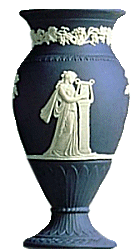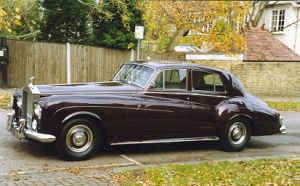
The things I believe the British DO do best!
Although Britannia no longer rules the waves, and our national sports teams regularly get beaten at games which we orginally taught the world, there are still a few areas in which we remain unrivalled. Here are just a few of my choices - if you can think of any others I've missed out, please email me with your suggestions.
RADIO AND TV BROADCASTING: |
PIONEERS AND INVENTORS:
the British have long had a fascination with inventions and discoveries both useful and esoteric : probably one of the earliest to have had a profound effect on society was William Caxton (1422 - 1491) who was the first to translate and print books in the English language.
The great British inventors and engineers of the period of the Industrial revolution and the years following had a lasting impact on the lives of everyone in "civilised world." Michael Faraday (1791 - 1867) invented both the electrical generator and the electric motor, thus influencing all kinds of things we now take for granted - without electricity, where WOULD we be?
In the field of transport, British engineers were unequalled : James Watt (1736 - 1819) & Richard Trevithick (1771 - 1833) both invented new steam engines and improved on older designs to improve safety - early steam engines, such as those pioneered by Thomas Newcomen (1663-1729), had a nasty habit of exploding unexpectedly - paving the way for
 Thomas Telford (1757 - 1834) was a prominent and gifted engineer who was responsible for the building of over a thousand miles of roads, major bridges including the forerunner of the modern suspension bridge, over the Menai Straits to link the island of Anglesey to mainland Wales (1819-24), and the world's first iron arch bridge over the Spey in Banffshire, Scotland, in 1813.
Thomas Telford (1757 - 1834) was a prominent and gifted engineer who was responsible for the building of over a thousand miles of roads, major bridges including the forerunner of the modern suspension bridge, over the Menai Straits to link the island of Anglesey to mainland Wales (1819-24), and the world's first iron arch bridge over the Spey in Banffshire, Scotland, in 1813.
Isambard Kingdom Brunel (1806 - 1859) is best remembered for the SS. Great Britain, the first propellor driven oceangoing steamship (1845), (using the screw propellor invented by another Briton, Robert Wilson, in 1827) but he also designed and built the first transatlantic passenger steamship the SS. Great Western (1838), named in honour of the Great Western Railway (which he also built between 1835 & 1841), the Clifton suspension bridge, countless tunnels, bridges, even harbours, and the first transatlantic telegraph cable was laid by the Great Eastern (launched in 1858).
Alexander Graham Bell (1847 - 1922) patented both Telegraphy (1875) and the Telephone (1876), opening up modern telecommunications
MISCELLANEOUS BRITISH INVENTIONS: Henry Bessemer (1813 - 1898) took out a total of 117 patents: his name is immortalised in the Bessemer Converter, for producing steel, but he also invented many other things, amongst them the embossed stamp, cheap lead pencils, the spinning mortar shell and in 1869 an anti-seasickness device intended to stop ships from rolling in heavy seas. Unfortunately it also made them unsteerable and his prototype, the Bessemer, demolished the pier at Calais and was one of his rare failures.
Henry Bessemer (1813 - 1898) took out a total of 117 patents: his name is immortalised in the Bessemer Converter, for producing steel, but he also invented many other things, amongst them the embossed stamp, cheap lead pencils, the spinning mortar shell and in 1869 an anti-seasickness device intended to stop ships from rolling in heavy seas. Unfortunately it also made them unsteerable and his prototype, the Bessemer, demolished the pier at Calais and was one of his rare failures.
The first sewing machine was patented by Thomas Saint in 1790, long after the knitting machine, invented by William Lee in 1589;
in 1810 Peter Durand patented the food canning process (but the can OPENER was not invented until 1858, when Ezra J. Warner of Waterbury, Connecticut patented the first can opener for use by the U.S. military during the Civil War!)
John Logie Baird (1888 - 1946) is immortalised for his invention of Television (1926) but also worked on early developments in radar and fibre optics (1924/5).
Kirkpatrick MacMillan invented the pedal cycle 1839 (but failed to patent it!)
The world's first powered flight took place not in America in 1903, but at Chard in Somerset in 1848 by John Stringfellow with a flight of 10 yards.
Still in the field of transport, the first traffic light was installed outside the Houses of Parliament in 1868 to keep the large number of horse-drawn carriages in the area from colliding. Unfortunately, the gas-powered light blew up, killing a passing police officer and thus discouraging further experiments until 1926 when the first automatic traffic light was installed in Wolverhampton. (It remained in service until 1968.)
Charles Babbage (1791 - 1879) invented the Difference Engine, the first information processor and the precursor to the computer, thus launching a whole way of life.  Although the idea was taken forward by American companies, Sir Clive Sinclair (1940 fl. 2000) invented the first affordable home computer, the Sinclair ZX80, which was launched in 1980 at a cost of £99.95 (0r £79 in kit form), followed in 1981 by the ZX81 at £69.95 or £49 in kit form. These prices compared favourably with £700 for the PET! Sir Clive has produced over 70 inventions, from pocket TVs (1966) to electric vehicles, including the innovative but ill-fated Sinclair C5 (1985)
Although the idea was taken forward by American companies, Sir Clive Sinclair (1940 fl. 2000) invented the first affordable home computer, the Sinclair ZX80, which was launched in 1980 at a cost of £99.95 (0r £79 in kit form), followed in 1981 by the ZX81 at £69.95 or £49 in kit form. These prices compared favourably with £700 for the PET! Sir Clive has produced over 70 inventions, from pocket TVs (1966) to electric vehicles, including the innovative but ill-fated Sinclair C5 (1985)
James Dyson (1947 - fl. 2000) is another inventor in the grand British tradition. He started out his successful run with the Sea Truck amphibious vehicle (1970), the ball-barrow (1974), the Trolleyball boat trolley(1978), the Wheelboat (1983) and finally, resulting from a project begun in 1983 in the ballbarrow factory, the cyclone vacuum cleaner which bears his name (1993).
STILL MORE INVENTORS.......
John Smeaton (1724 - 1790) - hydraulic cement and the Eddystone lighthouse 1756
Humphry Davy (1778 - 1829) - miner's safety lamp 1815
Robert William Thomson (1822-1873) - pneumatic tyres 1845, spring-interior mattress 1873 Joseph Adamson - flush toilet 1853
Joseph Adamson - flush toilet 1853
Hubert Cecil Booth (1871-1955) - first working vacuum cleaner patented 1901
Alexander Fleming - penicillin 1928
Percy Shaw - cats-eyes 1934
Robert Watson-Watt (1892 - 1973) - perfected RADAR 1935-40
Dennis Gabon - holography 1947
Sir Christopher Cockerell (1910 - 1999) - hovercraft 1959
Eric Laithwite (1921-1997) - linear induction motor - early 1960s
Trevor Baylis (fl 2000) - clockwork radio 1995 and the clockwork torch (flashlight)
There are many, many more British inventions and discoveries which I have not recorded above. The list is almost endless. According to Japanese research figures, of all the patents granted throughout the world for new inventions in the last 50 years, 40% have been to inventors from the British Isles alone, and the trend continues.
![]()
CHINA AND POTTERY:
 Although the Chinese invented fine porcelain (which is why we call it "china") and the French and Germans produced beautiful examples in the 18th and early 19th centuries, the most prestigious pottery nowadays comes from the British manufacturers, chiefly Royal Doulton, Crown Derby and of course, Wedgwood.
Although the Chinese invented fine porcelain (which is why we call it "china") and the French and Germans produced beautiful examples in the 18th and early 19th centuries, the most prestigious pottery nowadays comes from the British manufacturers, chiefly Royal Doulton, Crown Derby and of course, Wedgwood.
Josiah Wedgwood was born in 1730 in Burslem, Staffordshire, in the district known as "The Potteries," the third generation of a family of potters. In 1752 he went into business with some friends who allowed him a great deal of freedom in experimenting with designs and techniques, and in 1776 he finally perfected the Jasper ware which was to become synonymous with the name "Wedgwood."
Josiah Wedgwood died in 1795 but the Wedgwood pottery remains in production to this day and produces a wide selection of tableware and decorative ceramics, including but not confined to the famous Jasper ware : one very popular range from the Wedgwood factory is the "Peter Rabbit" children's tableware, featuring the well-known characters from the delightful stories by Beatrix Potter.
![]()
ROLLS-ROYCE
 The very name is synonymous with luxury and quality, the best of its kind.
The very name is synonymous with luxury and quality, the best of its kind.
Frederick Henry Royce (1863 - 1933) and the Hon. Charles Stuart Rolls (1877 - 1910) merged their fledgling motor companies in 1904, and the Rolls-Royce was born. From the start, the Rolls-Royce was a prestigious luxury car, and the very first model cost £395 at a time when the average weekly wage was £1.
The Rolls-Royce radiator mascot "Spirit of Ecstasy" was designed by Charles Sykes in 1910, as "an expression of the motion felt when riding in the car." The Rolls-Royce "flying lady" is probably the best-known car mascot in the world.
The Hon. Charles Rolls was killed in a flying accident in Bournemouth, on July 11th, 1910, when his Wright Biplane crashed from little more than 20 feet, and Henry Royce died on April 22nd, 1933, after a long period of ill-health. Their cars, however, continue to be made to this day and although the men who created the legend are gone, their names live on.
![]()
 The BBC does certain things particularly well : documentaries, especially wildlife programmes such those fronted by Sir David Attenborough, including the best-selling Life on Earth which has been sold to over 100 countries and seen by an estimated 500 million viewers; "costume dramas" whish are loved at home and abroad, and have served to bring the "classics" to a wider audience and the "BBC Shakespeare" which is now a standard visual aid in the majority of secondary schools.
The BBC does certain things particularly well : documentaries, especially wildlife programmes such those fronted by Sir David Attenborough, including the best-selling Life on Earth which has been sold to over 100 countries and seen by an estimated 500 million viewers; "costume dramas" whish are loved at home and abroad, and have served to bring the "classics" to a wider audience and the "BBC Shakespeare" which is now a standard visual aid in the majority of secondary schools.